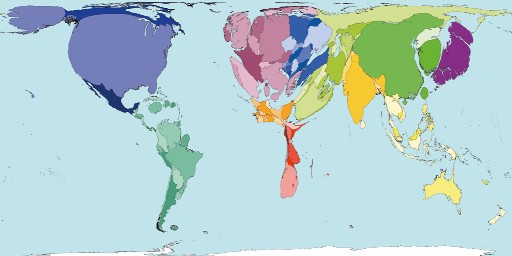UK Minister: You Have No Choice But To Accept GM Crops
Posted by keith on 18th March 2009
 You have to hand it to the UK Government; time after time they have pretended to care about greenhouse gas emissions, world peace, deforestation, toxic dumping, overfishing, human right abuses and all sorts of other things that a truly “caring government” would normally do positive things about (ok, some of you will have spotted the contradiction in terms), and time after time they have been exposed as brutal hypocrites, slavishly obeying the wishes of their corporate masters. Yet they keep coming back with ever more extraordinary claims about how they are just doing things because “it’s the right thing to do”.
You have to hand it to the UK Government; time after time they have pretended to care about greenhouse gas emissions, world peace, deforestation, toxic dumping, overfishing, human right abuses and all sorts of other things that a truly “caring government” would normally do positive things about (ok, some of you will have spotted the contradiction in terms), and time after time they have been exposed as brutal hypocrites, slavishly obeying the wishes of their corporate masters. Yet they keep coming back with ever more extraordinary claims about how they are just doing things because “it’s the right thing to do”.
Top of the list at the moment is carbon capture and storage, which is a way of ensuring we can keep burning coal — feeding the machine we have to remain tied to — while pretending all the emissions are going to be safely locked away and really won’t ever escape, no they won’t, no way, honest.
Coming up close on the heels of CCS is the unremitting desire to get genetically modified organisms into the food chain, thus satisfying the demands of many of the largest corporations on Earth: Cargill, BASF, Syngenta, Dow Chemicals and Monsanto — to name a few. The Canadian and US governments rolled over long ago, and the power of these corporations has ensured that South America is awash with GMOs, making it difficult to ensure that the food we eat isn’t contaminated in some way (Hint: grow your own). And that’s where The Independent takes up the story:
Jane Kennedy, the minister for Farming and the Environment, told The Independent yesterday that the [world food study] group’s work would include the potential for GM crops and food.
She said that she was “cautious” about allowing GM products in Britain, but added: “My own opinion is less important than what John Beddington might come up with. When the public are deeply concerned and hold strong views, they tend not to listen when ministers express a view. But they will listen to those who have the experience and knowledge to be able to offer solid advice.”
Ms Kennedy said that she would welcome GM crop trials in Britain. None is currently taking place because all projects have been vandalised by opponents but the Government may fund an experiment at a “secure” location.
The minister said another reason why the issue had to be addressed was that animal feed, such as soya, was increasingly made using GM products. “The options for those countries which want to stay GM-free are reducing, therefore the price of non-GM animal feed is going up. If that trend continues, it means meat products in countries which choose not to use GM becoming more and more expensive. There are clear implications for the UK,” she said.
Let’s get this right: the reason that the UK (and, by implication, every other nation that currently debarrs GMO growing) should embrace genetically modified crops is because it is too difficult and too expensive to avoid it. Which is like saying that the reason factories should continue to pour toxic chemicals into rivers is because it costs money to do something else with the toxins, and therefore the price of the factory’s goods would go up! Notice that she is referring only to meat, because animal feed production is by far the most profitable and powerful sector of the agricultural farming system, and to suggest we should not eat meat to reduce global food demand would be to defy her owners.
So she speaks from the mouth of the machine, like all good politicians.
Posted in Government Policies, Political Hypocrisy, Techno Fixes | No Comments »











